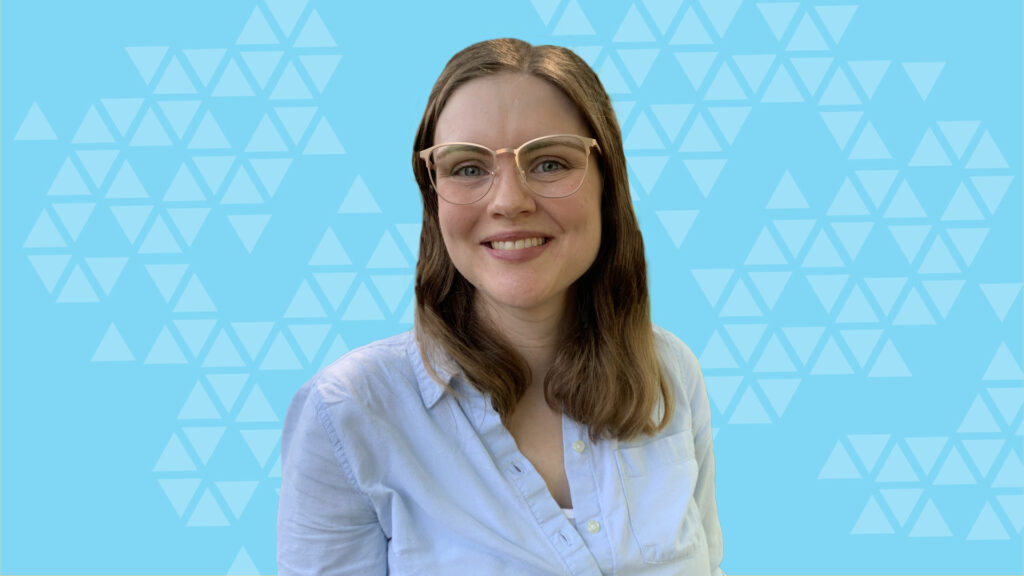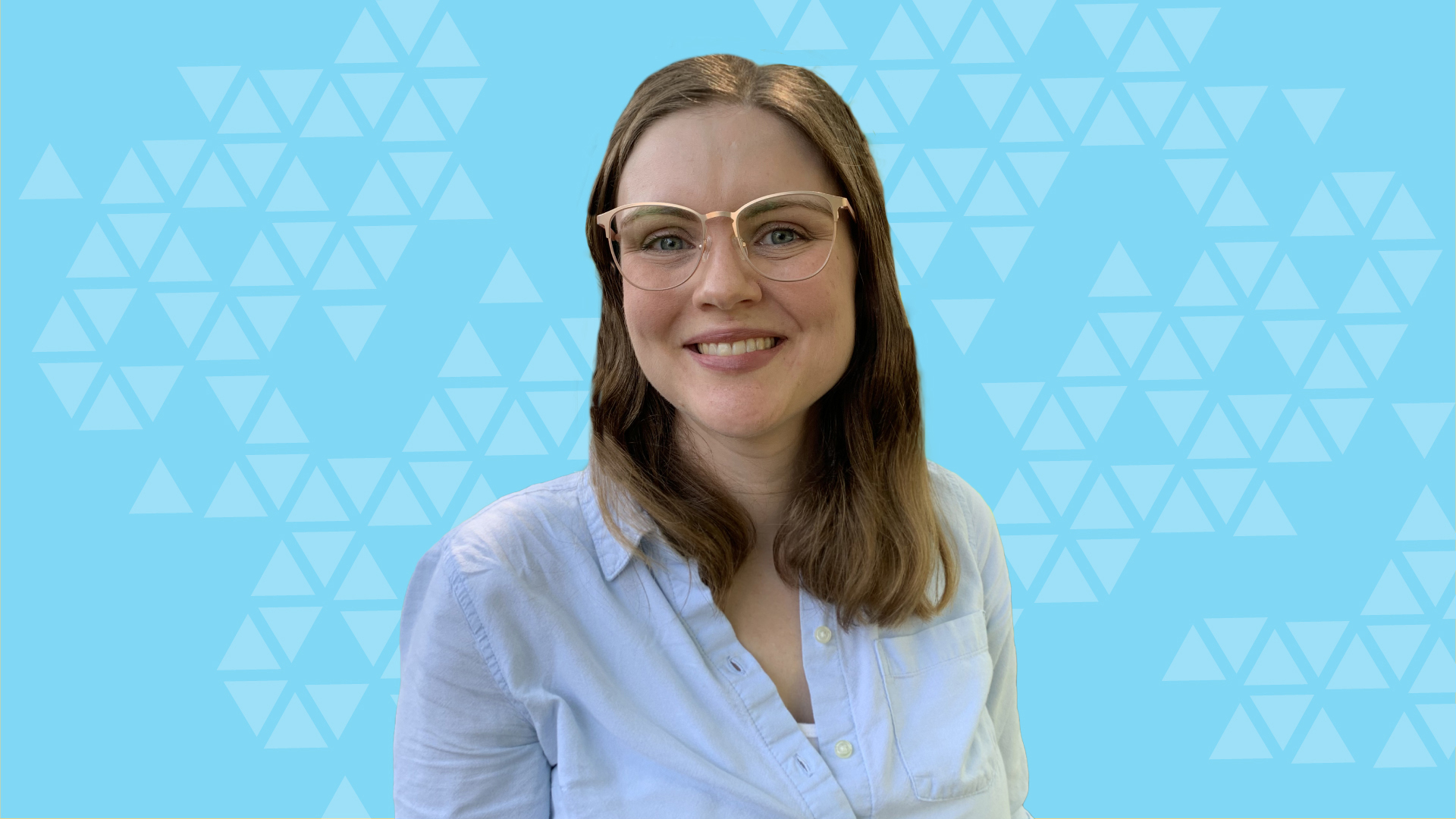
An educational media expert, Christensen specializes in early childhood media across a range of subjects including STEM, literacy and social-emotional learning.
Claire Christensen is engaged in a mission to make the world a better place for kids through her research, evaluation and development as a Senior Education Researcher at SRI International. An educational media expert, Christensen specializes in early childhood media across a range of subjects including science, technology, engineering and mathematics (STEM), literacy and social-emotional learning.
Since joining SRI in 2015, she’s spearheaded randomized controlled trials, quasi-experimental evaluations and mixed-method formative evaluations of educational media. She’s done this in connection with household-name organizations like PBS KIDS and Sesame Workshop.
At a fundamental level, Christensen’s efforts aim to provide children everywhere with access to engaging, effective educational media. She couldn’t be having more fun.
“It truly is my dream job,” says Christensen. “I feel like it’s our obligation as caring adults to make sure that kids are spending time on enriching activities that will prepare them to be successful and happy, and that’s at the heart of everything we’re doing at SRI Education.”
Taking a cue from Mr. Rogers
In a sense, Christensen’s future career was rooted in the caring pedagogical values of Mr. Rogers.
She admits that as a child, the famed host/educator of the iconic children’s television show had a great influence on her. “I was a very anxious child, and Mister Rogers’ Neighborhood was my main source for information about how to handle my anxiety. I want to pay the favor back by making sure that high-quality educational media reach as many children as possible.” Christensen carried a love for children’s television/media with her as she grew. That, combined with a passion for creating videos — discovered while making home movies when she was young — compelled Christensen to initially study television production as an undergrad, believing her career would be in TV.
“I thought I would be behind the camera, directing and editing,” says Christensen. “Making TV wasn’t really for me, but I did learn that I wanted to be the person who knew what should be on kids’ TV,” she says. “I wanted to be like Mr. Rogers and know what kids should be watching and what’s good for them. At the time, I didn’t know how exactly I’d do that, but I knew that like Mr. Rogers, I wanted to focus on social/emotional learning, teaching kids how to handle their feelings.”
Christensen soon discovered her path. After earning a BS in mass communication, with a focus on educational media, Christensen progressed to earning an MA and PhD in psychology, with a minor in evaluating educational programs, from the University of Illinois at Chicago.
While pursuing her course of study, Christensen engaged in projects she found exciting.
As a research intern at Chicago’s Museum of Science and Industry, she collaborated on four evaluations of STEM education programs. She loved talking with children as they tested a new science game, giving the developers feedback on what children grasped or didn’t.
As a graduate student she led a team in coding hours of children’s television episodes to develop and validate a classification system for social-emotional television content. Christensen also served as principal investigator on a mixed-methods evaluation of an online teacher-training program, and led six researchers in collecting more than 200 classroom observations and social-emotional assessments to validate a digital assessment tool.
All that, along with her other academic and work experience, put Christensen in a prime position to join an innovative non-profit research and development organization like SRI.
She feels she couldn’t have become part of a better team, not only because of the work she gets to do, but because of the collaborative and supportive environment that’s enabled her career to progress “so much faster and be much more successfully than if I were on my own.”
“What makes us so different and what’s so uniquely SRI is that we’re not just researchers, we’re truly developers too,” Christensen explains. “Within SRI Edducation, we’ve developed all kinds of innovative technology solutions. One thing I’d emphasize is that SRI doesn’t just do studies to find out if children’s media works. We also understand children’s media design, and can do studies to figure out how to make children’s media more engaging, educational and effective.”
Programming for the next generation
Take, for example, a current internal research and development (IRAD) project called APPROVE. She and the education team are collaborating with SRI’s Computer Vision Technologies Laboratory to leverage machine learning to understand what children watch on YouTube, and how it may impact their development.
“YouTube videos are released at an astonishing rate. Humans can’t possibly review every video a child might watch on YouTube,” says Christensen. “The tool we are developing could help to automate that process.”
Another project that’s close to Christensen’s heart is her work on the Ready To Learn (RTL) Initiative, for which SRI co-leads summative and formative evaluations of PBS KIDS apps and videos along with research partner Education Development Center (EDC). SRI and EDC conduct studies to measure the impact of RTL-funded PBS KIDS series and games on young children’s learning. Christensen recently co-lead a randomized controlled trial to measure the impact of the PBS KIDS series Molly of Denali on young children’s literacy skills.
Part of the RTL project included measuring how well children transfer what they learn in a digital setting to real-world situations. One scenario involved seeing how much kids learned from videos and games around the structural properties of bridges. Christensen helped develop an assessment in which children built a bridge out of common household items to help a toy to get from one side to the other. “It was a lot of fun running around the house grabbing things, trying to see what household items seem like they’d make a good bridge but don’t, or vice versa,” Christensen says.
Christensen also leads evaluations for Sesame Workshop, a nonprofit organization responsible for children’s education programs, including the famous Sesame Street. Her work helps inform the development of media resources for families.
“My secret goal is to someday have a work meeting that Big Bird attends — that’s what’s motivating me,” Christensen says, laughing as she references the popular Sesame Street character. “Joking aside, though, I really have found the perfect job here at SRI. I get to do the work I love every day.”



